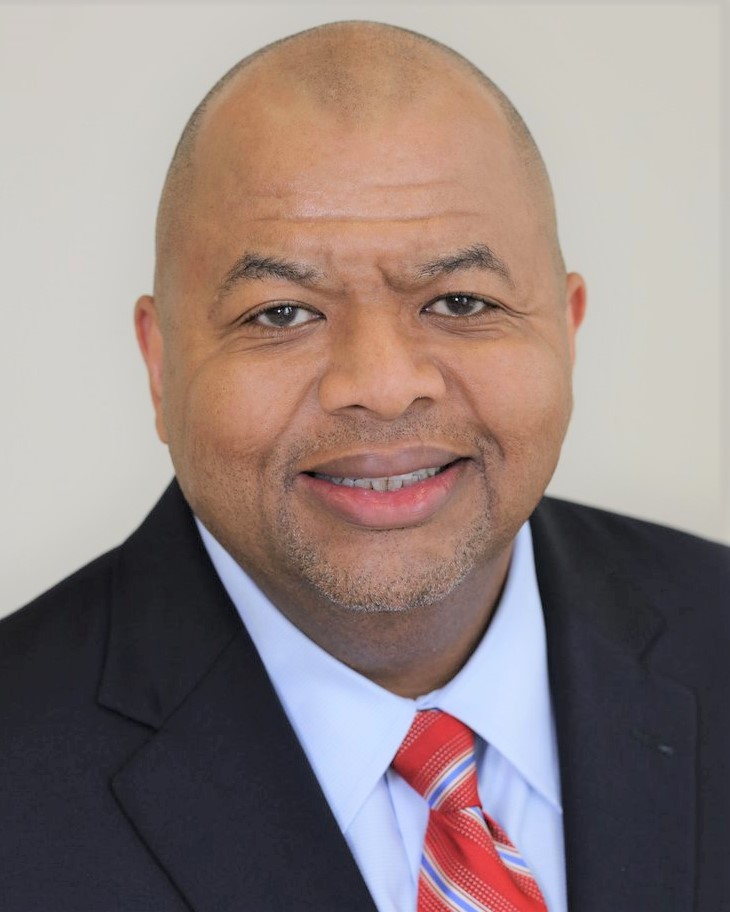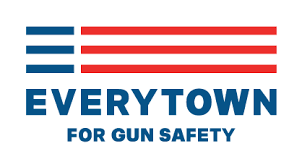About Us
Our Team
 Thomas Abt is the VRC’s Founding Director and an associate research professor in the Department of Criminology and Criminal Justice. Abt teaches, studies, and advises on the use of evidence-informed approaches for reducing violence in the United States and globally. He is the author of Bleeding Out: The Devastating Consequences of Urban Violence - and a Bold New Plan for Peace in the Streets. Abt’s work is cited in academic journals and featured in media outlets including the Atlantic, Economist, New Yorker, New York Times, Washington Post, Wall Street Journal, CBS, CNN, MSNBC, PBS, and National Public Radio. His TED talk on community violence has been viewed more than 200,000 times.
Thomas Abt is the VRC’s Founding Director and an associate research professor in the Department of Criminology and Criminal Justice. Abt teaches, studies, and advises on the use of evidence-informed approaches for reducing violence in the United States and globally. He is the author of Bleeding Out: The Devastating Consequences of Urban Violence - and a Bold New Plan for Peace in the Streets. Abt’s work is cited in academic journals and featured in media outlets including the Atlantic, Economist, New Yorker, New York Times, Washington Post, Wall Street Journal, CBS, CNN, MSNBC, PBS, and National Public Radio. His TED talk on community violence has been viewed more than 200,000 times.
Abt also serves as a Senior Fellow with the Council on Criminal Justice in Washington, DC, where he serves on its Crime Trends Working Group. Previously he chaired CCJ’s Violent Crime Working Group, a diverse group of leaders dedicated to addressing the most pressing challenges concerning crime, violence, and justice. Prior to the Council, he worked as a Senior Fellow at the Harvard Kennedy and Law Schools.
Before Harvard, Abt served as Deputy Secretary for Public Safety to Governor Andrew Cuomo in New York, where he oversaw all criminal justice, homeland security, and emergency management agencies. During his tenure, he led the development of New York’s GIVE (Gun-Involved Violence Elimination) Initiative, which employs evidence-based, data-driven approaches to reduce gun violence.
Before New York, Abt served as Chief of Staff to the Office of Justice Programs at the U.S. Department of Justice, where he worked with the nation’s principal criminal justice grant-making and research agencies to integrate evidence, policy, and practice. While there, Abt played a lead role in establishing the National Forum on Youth Violence Prevention, a network of federal agencies and local communities working together to reduce youth and gang violence.
Over the course of his career, Abt has advised hundreds of public officials on the use of evidence-informed anti-crime strategies, both domestically and abroad.
 Rod Brunson provides the VRC with strategic guidance and assistance. A Professor of Criminology, Brunson is an award-winning scholar, prolific author, and sought after speaker who is widely known for his expertise regarding the impact of concentrated neighborhood disadvantage, police-community relations, qualitative research methods, and youth violence – specifically, youths’ experiences in neighborhood contexts, with a special focus on the interactions of race, class, and gender, and their relationship to criminal justice practices. He is also a Fellow of the American Society of Criminology.
Rod Brunson provides the VRC with strategic guidance and assistance. A Professor of Criminology, Brunson is an award-winning scholar, prolific author, and sought after speaker who is widely known for his expertise regarding the impact of concentrated neighborhood disadvantage, police-community relations, qualitative research methods, and youth violence – specifically, youths’ experiences in neighborhood contexts, with a special focus on the interactions of race, class, and gender, and their relationship to criminal justice practices. He is also a Fellow of the American Society of Criminology.
Brunson has published more than fifty articles, book chapters, and essays on criminal justice policies and crime control practices. His scholarship appears in numerous prominent academic journals such as Crime & Delinquency, Criminology, Criminology & Public Policy, the Journal of Quantitative Criminology, Justice Quarterly, Sociological Quarterly, and the Urban Affairs Review. He is the recipient of multiple prestigious awards, including the New Scholar Award, American Society of Criminology, Division on People of Color and Crime, 2008 and the Tory J. Caeti Outstanding Young Scholar Memorial Award, Academy of Criminal Justice Sciences, Juvenile Justice Section, 2010.
 Joanee Dias is an Intern at the VRC and is currently an undergraduate student pursuing a bachelor's degree in Criminology and Criminal Justice, with a minor in Law and Society. She is also a member of the prestigious CCJS Honors Program. Prior to joining the VRC, Dias interned at the Public Defender Service for the District of Columbia, where she assisted with investigative tasks to advocate for individuals who may not have equal access to legal representation. Her research interests focus on the effects of discriminatory laws and how they continue to marginalize certain groups in society, contributing to the perpetuation of violence. Dias plans to continue her education by pursuing a Juris Doctorate, with the goal of giving a voice to those who are often unheard in the legal system.
Joanee Dias is an Intern at the VRC and is currently an undergraduate student pursuing a bachelor's degree in Criminology and Criminal Justice, with a minor in Law and Society. She is also a member of the prestigious CCJS Honors Program. Prior to joining the VRC, Dias interned at the Public Defender Service for the District of Columbia, where she assisted with investigative tasks to advocate for individuals who may not have equal access to legal representation. Her research interests focus on the effects of discriminatory laws and how they continue to marginalize certain groups in society, contributing to the perpetuation of violence. Dias plans to continue her education by pursuing a Juris Doctorate, with the goal of giving a voice to those who are often unheard in the legal system.
 Sara-Laure Faraji is a research associate at the VRC and a doctoral candidate in the Department of Criminology and Criminal Justice at the University of Maryland. Faraji obtained a BA and MS in Criminology from the University of Pennsylvania, earning the Excellence in Applied Criminology Award for her master’s thesis on the impact of homeless shelters on crime rates in surrounding areas, before working as a quantitative analyst at RAND Corporation. Her research interests lie in studying the effects of laws, policies, and programs on crime and the criminal justice system. Through her work, Faraji aims to inform policy to improve public safety and make the criminal justice system more equitable.
Sara-Laure Faraji is a research associate at the VRC and a doctoral candidate in the Department of Criminology and Criminal Justice at the University of Maryland. Faraji obtained a BA and MS in Criminology from the University of Pennsylvania, earning the Excellence in Applied Criminology Award for her master’s thesis on the impact of homeless shelters on crime rates in surrounding areas, before working as a quantitative analyst at RAND Corporation. Her research interests lie in studying the effects of laws, policies, and programs on crime and the criminal justice system. Through her work, Faraji aims to inform policy to improve public safety and make the criminal justice system more equitable.
 Grace Magori is the VRC’s program manager. She recently graduated from the University of Maryland with a bachelor’s degree in Criminology and Criminal Justice. Magori previously worked at UMD’s National Consortium for the Study of Terrorism and Responses to Terrorism, where she assisted researchers in improving the PIRUS dataset. In 2020, she and nine other students were selected by the National Science Foundation’s Research to conduct original research at the University of Arkansas, Little Rock, where she analyzed data concerning hate crimes against Muslims in the south. Magori’s interests lie mainly in using community-led initiatives to improve safety, security, and curbing ideologically motivated violence. She hopes to continue her education by pursuing a PhD in criminology.
Grace Magori is the VRC’s program manager. She recently graduated from the University of Maryland with a bachelor’s degree in Criminology and Criminal Justice. Magori previously worked at UMD’s National Consortium for the Study of Terrorism and Responses to Terrorism, where she assisted researchers in improving the PIRUS dataset. In 2020, she and nine other students were selected by the National Science Foundation’s Research to conduct original research at the University of Arkansas, Little Rock, where she analyzed data concerning hate crimes against Muslims in the south. Magori’s interests lie mainly in using community-led initiatives to improve safety, security, and curbing ideologically motivated violence. She hopes to continue her education by pursuing a PhD in criminology.
 Mark Mills is a research associate at the VRC. He is currently a PhD candidate in the Department of Criminology and Criminal Justice at the University of Maryland. Before beginning his studies, Mills worked as a deputy district attorney in Nevada for ten years. In 2016, he earned a master’s degree in Criminology, Law, and Society from the University of California at Irvine. While at the University of Maryland, Mills has worked as a policy analyst for the Maryland State Commission on Criminal Sentencing Policy. His research interests focus on public policy, policing, and program evaluation.
Mark Mills is a research associate at the VRC. He is currently a PhD candidate in the Department of Criminology and Criminal Justice at the University of Maryland. Before beginning his studies, Mills worked as a deputy district attorney in Nevada for ten years. In 2016, he earned a master’s degree in Criminology, Law, and Society from the University of California at Irvine. While at the University of Maryland, Mills has worked as a policy analyst for the Maryland State Commission on Criminal Sentencing Policy. His research interests focus on public policy, policing, and program evaluation.

Amber Parker is the VRC’s Deputy Director. Amber previously served as a Senior Policy Advisor at the U.S. Department of Justice’s Bureau of Justice Assistance, where she led national efforts to advance evidence-based crime reduction and community safety. Her work centered on helping jurisdictions implement the Violent Crime Reduction Roadmap and supporting cities in adopting the Ten Essential Actions that align federal resources with locally driven strategies to reduce gun violence. Before entering federal service, she was the Grant Manager for the City of Omaha Mayor’s Office, where she oversaw the grant administration division and a broad portfolio of federal, state, and local funding.
Amber also previously managed Douglas County’s Juvenile Justice System Reform initiative, leading collaborative and research-based improvements across agencies. She launched a School Justice Partnership pilot that cut school-based arrests by half and advanced trauma-responsive practices, developmentally aligned approaches for youth, and cross-system data sharing. Earlier in her career, she held multiple youth-focused and justice system roles including Youth Services Administrator, Juvenile Diversion Programs Supervisor, Youth Advocate, and Juvenile Court School Liaison.
Amber holds a Master of Justice Management from the University of Nevada, Reno, and a bachelor’s degree in sociology from the University of Iowa. She is a graduate of Georgetown University’s School Justice Partnerships Program, a member of the Georgetown Fellows Network, and has advanced training in gang prevention, intervention, and counseling.
Our Supporters


_0.png)


Other Violence-Related Work at UMD
The 120 Initiative, launched by the Consortium of Universities of the Washington Metropolitan Area, seeks to advance promising, actionable solutions to reduce gun violence in the United States.
The Center for Substance Abuse, Addiction, and Health Research (CESAR) at the University of Maryland, College Park addresses behavioral health outcomes related to substance use, educating policymakers, practitioners, and the general public about prevention and treatment.
The Maryland Crime Research and Innovation Center (MCRIC) at the University of Maryland, College Park provides research and data analysis to inform crime reduction strategy and policy to help make Maryland communities safer.
The Prevent Gun Violence: Research, Empowerment, Strategies and Solutions (PROGRESS) initiative at the University of Maryland, College Park is designed to reduce firearm-related violence and promote safe homes and communities using a multi-disciplinary, community-based and translational science approach.
The University of Maryland, Baltimore Center for Violence Prevention conducts participatory research, provides education, and advocates for policies to strengthen Baltimore’s communities and prevent violence.
The Violence Prevention Programs at the University of Maryland Medical Center works to reduce the frequency and the severity of recidivism for violent injury and criminal activity among persons living in and around Baltimore City.

